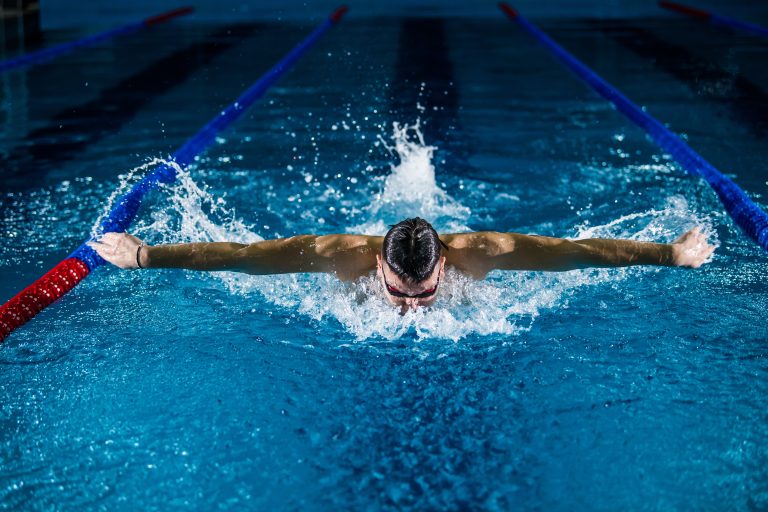What Are the Benefits of Practicing Karate?
Karate is a martial art that has long been widely practiced by people of all ages across the globe. It is considered to be a great way to get into better shape, build self-confidence, and learn self-defense. But exactly what are the benefits of practicing karate? In this blog post, we’ll take a look at the answers to this question, exploring the many physical and mental benefits of karate practice.
Physical Benefits of practising karate
Practising karate offers a great many physical benefits. Here are a few of them:
1. Improved Strength and Balance
Karate practice is an excellent form of strength and cardiovascular training. Through performing various strikes, blocks, and kicks, muscles throughout the body are worked, improving strength, power, and balance.
2. Flexibility
Improving flexibility is very important in karate, since it helps increase the range of motion and speed of the body’s movements. Over time, regular karate practice helps to improve flexibility and mobility.
3. Increased Stamina
Karate practice works the body’s cardiovascular system to build up stamina. Through performing cardiovascular drills such as running and jumping jacks, practicing kata (choreographed patterns of moves) and other forms of conditioning, karate practitioners can increase their stamina and endurance.
4. Improved Posture
Karate practice is known to help improve posture. Improved posture can benefit both physical health and physical appearance. It also helps to maintain proper alignment of the spine.
Mental Benefits of Practising Karate
In addition to the physical benefits, karate practice also has many mental benefits. Here are just a few:
1. Stress Relief
Practising karate can be a great way to reduce stress and clear your mind. The physical movement of karate techniques relieves tension in the muscles, waking up energy in the body and providing a sense of calmness and relaxation.
2. Discipline
The practice of learning kata and other martial art forms can help to build discipline by teaching how to focus and focus for extended periods of time. As practitioners master their techniques and forms, they must remain focused and disciplined throughout the entire exercise.
3. Self-Confidence
Karate practice can help to build self-confidence and self-esteem. Through mastering new techniques and learning complex forms, practitioners gain confidence in their ability to do something challenging and difficult – something they never thought they would be able to do.
4. Mental Clarity
The physical components of karate also help to give practitioners greater mental clarity. Through deep breathing and mindful practice, practitioners can calm their minds, allowing them to become more aware of their thoughts and feelings, resulting in greater mental clarity and insight.
Conclusion
Karate is an effective way for both children and adults alike to get in shape, gain strength, learn discipline, increase self-confidence, relieve stress and more. The physical and mental benefits of practicing karate make it an excellent form of exercise for people from any walk of life looking to improve their lives. With the appropriate guidance from a qualified instructor, karate is a safe practice that offers many far-reaching benefits for both body and mind.
What Are the Benefits of Practicing Karate?
Karate is a popular martial art that originated in Okinawa, Japan. It is an excellent form of physical activity, self-defense, and character development that can benefit people of all ages. If you are looking to get into karate, you may be wondering what benefits you can expect to gain from practicing it. In this article, we will answer some of the most frequently asked questions about the benefits of practicing karate.
1. What Is Karate?
Karate is a martial art that involves a series of techniques including kicks, punches, strikes, and blocks. The aim of karate is to defend oneself from an attack while also developing self-discipline, concentration, and physical fitness.
2. What Are the Physical Benefits of Practicing Karate?
Practicing karate can provide numerous physical benefits, including:
a. Improved Cardiovascular Health
Karate involves a lot of movement and requires a high level of cardiovascular endurance. By practicing karate, you can increase your heart rate, which can improve your cardiovascular health.
b. Increased Strength and Flexibility
Karate requires you to use your whole body, which can help you to develop strength and flexibility. You will be required to perform movements that strengthen your arms, legs, core, and back, which can be especially beneficial for people who spend a lot of time sitting at a desk.
c. Weight Loss and Management
Karate is a physically demanding activity that can burn a lot of calories. By practicing karate regularly, you may be able to lose weight and keep it off.
d. Improved Coordination and Balance
Karate requires good coordination and balance, which can be improved with practice. These skills can be especially useful for older adults who are at risk of falls.
3. What Are the Mental Benefits of Practicing Karate?
Karate is not just a physical activity; it also has many mental benefits, including:
a. Improved Focus and Concentration
Karate requires a lot of mental focus, which can help you to develop better concentration and focus in other areas of your life.
b. Increased Self-confidence
As you become more skilled in karate, you will gain a sense of self-confidence and self-efficacy. This can be especially beneficial for children and teenagers who may struggle with self-esteem issues.
c. Stress Relief
Karate can be an excellent form of stress relief. By focusing on the movements and breathing techniques required in karate, you can reduce stress and anxiety.
d. Character Development
Karate is not just about physical fitness and self-defense; it also focuses on character development. By practicing karate, you can learn important values such as respect, discipline, and humility.
4. Is Karate Safe?
Like any physical activity, there is a risk of injury associated with practicing karate. However, when taught by a qualified instructor, and with proper safety precautions, the risk of injury is minimal. It is important to start slowly and gradually build up your skills to avoid injury.
5. Who Can Practice Karate?
Karate is suitable for people of all ages and fitness levels. Children as young as 4 years old can start practicing karate, and there is no upper age limit. Karate can be adapted to suit each individual’s abilities, and modifications can be made to accommodate physical limitations or disabilities.
6. How Do I Get Started with Karate?
To get started with karate, you will need to find a qualified instructor in your local area. Look for a martial arts school or dojo that has experienced instructors who can teach you the proper techniques and safety precautions. It is also important to choose a style of karate that suits your interests and abilities.
Conclusion
Karate is an excellent form of physical activity, self-defense, and character development that can benefit people of all ages. By practicing karate, you can improve your cardiovascular health, strength, flexibility, coordination, and balance. Karate also has numerous mental benefits, including increased focus and concentration, self-confidence, stress relief, and character development. If you are interested in starting karate, be sure to find a qualified instructor in your local area and choose a style that suits your interests and abilities.
Inhaltsverzeichnis






